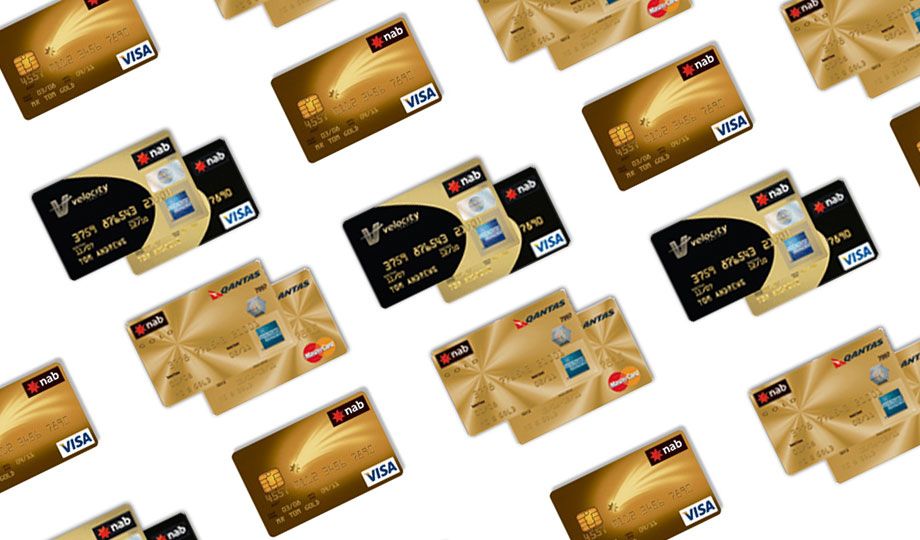Disclaimer
Executive Traveller may receive a commission when you apply for these credit cards via our links.
The information provided on this page is purely factual and general in nature. You should seek independent advice and consider your own personal circumstances before applying for any financial product.
How it compares:
Out of the credit card travel insurance offers we compared (NAB, Commonwealth Bank, Westpac, St George, ANZ and American Express), NAB's was average in most areas and good in its income protection and overseas medical/dental coverage. However, if you have a pre-existing medical condition of any sort (or any past medical problem that a new condition could be traced back to) this insurance is absolutely not for you -- it flatly excludes all pre-existing medical conditions. NAB's rental car excess coverage is also next to worthless once you read the fine print.
Not all travel is covered: you have to pay for 50% of the trip's transport, accommodation and other itinerary items on the NAB Gold card, however, that's pretty fair compared to other credit cards (for example, Commonwealth Bank Gold and Platinum cards only cover you if you put 90% of your airline ticket costs on the card, or $950 per traveller -- whichever is higher!) Some other cards require you to charge 100% of the cost on their cards, which is an easy test to fail if you're paying for short-trip transport tickets along the way with cash.
Who's covered:
The cardholder, their spouse and dependent children for overseas trips up to 90 days of consecutive travel after leaving your Australian home. There is no domestic travel insurance, except for domestic flights connecting to international flights.
Good or bad? Average for gold cards -- the others we reviewed covered trips of up to three months. Platinum cards offer better coverage, with six months being the norm, and Commonwealth Bank's platinum card even covering trips of up to 12 months.
When the policy kicks in:
In order for the insurance cover to be activated, 50% of the cost of the trip (including flights, ground travel, accommodation and any other itinerary costs) must be charged to the NAB Gold credit card, or paid for with NAB Rewards points.
Good or bad? Good -- very fair. This leaves a lot of scope for paying cash deposits, or paying for bus/ferry/public transport tickets with cash. It also means cheap international flights to relatively nearby countries will be covered, as there's no minimum spend threshold for the insurance to be activated. The only better card we saw was ANZ Platinum, which only required $250 worth of trip costs to be charged to the card.
Excesses:
If you run into trouble on your trip, and need to use the policy, you'll have to pay $200 per claim type. (However, there's no excess if you need replacement of travel documents, credit cards, travellers cheques, or the emergency replacement of your clothes and toiletries due to delayed baggage.)
Good or bad? It's average for platinum card travel insurance. Some are much better though -- Westpac Altitude Platinum and St George Platinum only charge one $200 excess per "event" which can include multiple claim types. An independent travel insurance policy from Travel Insurance Direct would only charge $100 per claim, and it would only cost you $25 at the time of purchasing the policy to remove the excess entirely.
Medical coverage:
Unlimited coverage of "reasonable" medical costs, and a cash-in-hospital allowance of $50 per day, up to a maximum of $5,000. Unlimited emergency dental treatment -- to relieve urgent pain only.
Good or bad? It's good that dental treatment is unlimited, as this is almost always limited to a fairly low dollar value in travel insurance policies. However, the cash in hospital amount is bad compared to NAB's own platinum card, which offers a $100 daily amount to a maximum of $15,000, while Westpac and St George Platinum offer $12,000.
Pre-existing medical problems:
This insurance policy curtly states: "This coverage does not provide any benefits for pre-existing medical conditions."
Good or bad? Very bad -- if you have had any medical problem in the past (or currently) which could be linked to an illness that you get overseas, you won't be covered for medical costs. NAB is the only credit card in the ones we looked at that flatly excluded any pre-existing medical conditions.
Income protection:
This policy also pays loss of income benefit for people who are injured during an accident overseas of up to $1,000 per person per week for up to 13 weeks. The payments will only start four weeks after you were meant to go back to your job, though, and the insurance doesn't cover illness -- only accidental injury. This is about 75% of the average annual salary of $1,250 per week, so it won't cover everyone's salary, but it will certainly help enormously with essential bills.
Good or bad? Excellent - some credit cards like Westpac and American Express Platinum Edge don't offer it at all, and most cards that offer income protection have lower limits than NAB offers -- up to $13,000 per person who can't go back to work due to accidental injury while overseas.
Death while travelling:
The policy provides $200,000 for the death of a cardholder or spouse in a transport accident, or $50,000 for the death of a child.
Good or bad? Bad - Commonwealth Bank Gold or Platinum cards pay $1,000,000 if the cardholder dies in a transport accident (though only $150,000 for their spouse), while ANZ Platinum cards offer great coverage for both, offering $750,000 for death of the cardholder or spouse.
Accidental death:
Accidental death (not related to a transport accident, up to 12 months after some other sort of related accident) are $100,000 for the cardholder and $50,000 for their spouse. There is no coverage for children who die.
Good or bad? Good -- only NAB platinum cards are better with $150,000 for death of a platinum cardholders or their spouse.
Theft/loss/damage:
Up to $20,000 in total for a whole family for property loss or damage while travelling, or up to $10,000 per person. Per item limits of $2,000 apply though (or up to $6,000 for a laptop). There is no coverage for cash or tickets.
Good or bad? Bad. Although the per person limit of $10,000 is about average for a gold card insurance policy, the low per-item claim limits mean you might not get your money back for valuables like jewellery, and this is one of the few credit card travel insurance policies that provides no cover at all for lost or stolen cash.
Rental cars:
$2,000 -- but there are some horrible catches, which make it practically worthless. NAB's policy says you must only drive a sedan or stationwagon, and you must take all insurance options or waivers, "whether discretionary or mandatory" offered to you by the rental car company -- which presumably includes add-ons for insurance excess reduction anyway.
Good or bad? Bad! If you want to rent a 4WD, hatchback, coupe or any other type of car that's not a sedan or stationwagon, this car rental excess is worthless. What's more, the requirement to take all insurance options from a car rental company means you probably wouldn't have to pay an excess anyway since you'd be paying the costly per-day fee to remove the insurance excess.
Travel delays:
After 6 hours' delay, the insurance will pay out up to $250 per person, to a total maximum of $500. After another 12 hours, you get the same benefit again. If you miss a connection, NAB will also reimburse up to $2,000 in expenses.
Good or bad? Average for gold cards, though Westpac Gold provides twice as much -- up to $500 per person after a six hour delay, though with a cumulative total of $900. It's good that NAB offers extra coverage for missed connections, because some cards don't offer this.
Toll free number:
You can call the insurer reverse charges from anywhere in the world, so you won't have to pay for international phone calls, in case of emergency while overseas.
Good or bad? Good.
What they don't cover:
You need to read the whole policy to see everything that's not covered, but some things that particularly stood out to us were: any medical expense that's not "reasonable", many adventure sports, any time you expose yourself to danger, being under the influence of drugs or alcohol, travel provider going out of business, any time you have not taken adequate precautions after warnings in the news about something, anything fragile except cameras, binoculars, spectacles and contact lenses, anything you leave 'unaccompanied' (e.g. luggage in a hotel room), any clothing while being laundered, any loss or theft of cash, anything left in a car.
Good or bad? All insurance has a lot of exclusions. The key is to read up on them before leaving on your trip, and plan around them. The one that worries us in this policy is the use of the word "reasonable" in association to the unlimited medical cost coverage. This leaves what level of care you get in a medical emergency up to what the insurer considers is reasonable.
NAB's gold credit cards with travel insurance:
- NAB Gold Card
annual fee $90, interest rate 19.74% purchases / 19.74% cash advances - NAB Qantas Gold Card
annual fee $145.50, interest rate 20.24% purchases / 20.24% cash advances - NAB Velocity Gold Card
annual fee $150.00, interest rate 20.24% purchases / 20.24% cash advances
NAB's website about gold credit card travel insurance:
http://www.nab.com.au/wps/wcm/connect/nab/nab/home/personal_finance/4/15
Full NAB Gold Credit Card travel insurance policy PDS document:
http://www.nab.com.au/wps/wcm/connect/e04f2b004b9d4760a210e3f1eeeae8e9/GoldInsurancePolicybrochure.pdf?MOD=AJPERES&CACHEID=e04f2b004b9d4760a210e3f1eeeae8e9
This article was written based on the product disclosure statement available on the NAB's website on 1st December, 2010. Insurers can change the wording of policies they are selling at any time, so be sure to read the product disclosure statement yourself before signing up. Additionally, this article should not be taken as formal financial advice. You should consult a qualified financial planner.
Disclaimer
Executive Traveller may receive a commission when you apply for these credit cards via our links.
The information provided on this page is purely factual and general in nature. You should seek independent advice and consider your own personal circumstances before applying for any financial product.


Hi Guest, join in the discussion on NAB Gold credit card travel insurance reviewed